Best Python Testing Tools to Buy in February 2026
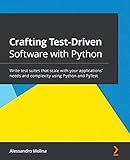
Crafting Test-Driven Software with Python: Write test suites that scale with your applications' needs and complexity using Python and PyTest


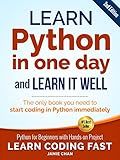
Python (2nd Edition): Learn Python in One Day and Learn It Well. Python for Beginners with Hands-on Project. (Learn Coding Fast with Hands-On Project Book 1)


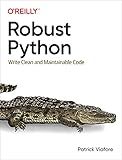
Robust Python: Write Clean and Maintainable Code


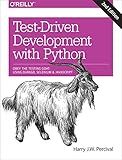
Test-Driven Development with Python: Obey the Testing Goat: Using Django, Selenium, and JavaScript


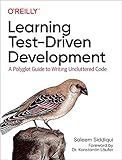
Learning Test-Driven Development: A Polyglot Guide to Writing Uncluttered Code



Mastering Python for Bioinformatics: How to Write Flexible, Documented, Tested Python Code for Research Computing


In pytest, you can skip tests based on a condition by using the skipif decorator. This decorator takes a condition as an argument and skips the test if the condition evaluates to True. You can use any valid Python expression as the condition.
For example, if you only want to run a test on certain operating systems, you can use the platform module to check the current operating system and skip the test if it doesn't match:
import platform import pytest
@pytest.mark.skipif(platform.system() != 'Linux', reason="Test only runs on Linux") def test_my_linux_only_function(): # test code
Similarly, you can skip a test based on any condition that you can check within your test code. This can be useful when you want to skip tests that may not be relevant in certain scenarios or environments.
How to skip a test based on platform in pytest?
To skip a test based on platform in pytest, you can use the pytest built-in skipif decorator. First, you need to determine the platform you want to skip the test on. You can use the sys.platform attribute to get the current platform.
Here is an example of how to skip a test based on the platform being Windows:
import sys import pytest
@pytest.mark.skipif(sys.platform == 'win32', reason='Test is skipped on Windows platform') def test_my_platform_specific_test(): # Your test code here assert True
In this example, the test_my_platform_specific_test function will be skipped if the platform is win32 (Windows). You can change the condition to match your desired platform. If the condition is True, the test will be skipped and the reason specified in the skipif decorator will be displayed in the test report.
What is the etiquette for skipping tests in a shared codebase with pytest?
Skipping tests in a shared codebase with pytest should be done carefully and with consideration for your team members. Here are some tips for handling skipped tests in a shared codebase:
- Communicate with your team: Before skipping a test, make sure to communicate with your team members about the reason for skipping it. This will help prevent confusion and ensure that everyone is on the same page.
- Use the @pytest.mark.skip decorator: In pytest, you can use the @pytest.mark.skip decorator to mark a test as skipped. This will provide a clear indication in the test report that the test was intentionally skipped.
- Provide a reason for skipping: When using the @pytest.mark.skip decorator, it is a good practice to provide a reason for skipping the test. This will help your team members understand why the test was skipped and whether it needs to be revisited in the future.
- Consider creating a GitHub issue: If you are skipping a test due to a known issue or bug that needs to be addressed later, consider creating a GitHub issue to track the issue. This will help ensure that the test is revisited and fixed in a timely manner.
- Monitor skipped tests: Keep track of any tests that have been skipped in the codebase and periodically review them to see if they can be unskipped. This will help prevent skipped tests from accumulating over time and ensure that all tests are running as intended.
Overall, the key to skipping tests in a shared codebase with pytest is communication and transparency. By following these etiquette tips, you can make sure that skipped tests are handled appropriately and effectively in your team's codebase.
What is the purpose of skipping tests in pytest?
The purpose of skipping tests in pytest is to temporarily exclude certain tests from being executed during test runs. This can be useful in situations where a test cannot be adequately run due to environmental issues, dependencies that are missing, or other reasons, but the test should not be permanently removed from the test suite. By skipping tests, developers can continue to run the rest of the tests without being hindered by the skipped test.
How to skip tests based on command-line options in pytest?
To skip tests based on command-line options in pytest, you can use the built-in skipif decorator along with a condition that checks for the presence of a specific command-line option. Here's an example of how you can skip a test based on a command-line option:
- Create a conftest.py file in your project directory with the following content:
import pytest
def pytest_addoption(parser): parser.addoption("--run-slow", action="store_true", help="run slow tests")
def pytest_configure(config): config.addinivalue_line("markers", "slow: mark test as slow to run")
def pytest_collection_modifyitems(config, items): if not config.getoption("--run-slow"): skip_slow = pytest.mark.skip(reason="need --run-slow option to run") for item in items: if "slow" in item.keywords: item.add_marker(skip_slow)
- In your test file, you can use the slow marker to mark tests that should be skipped unless the --run-slow option is provided:
import pytest
@pytest.mark.slow def test_slow_function(): assert True
- Run your tests with the --run-slow option to include the slow tests:
pytest --run-slow
Any tests marked with the slow marker will be skipped unless the --run-slow option is provided on the command line. This allows you to easily control which tests are run based on command-line options.
